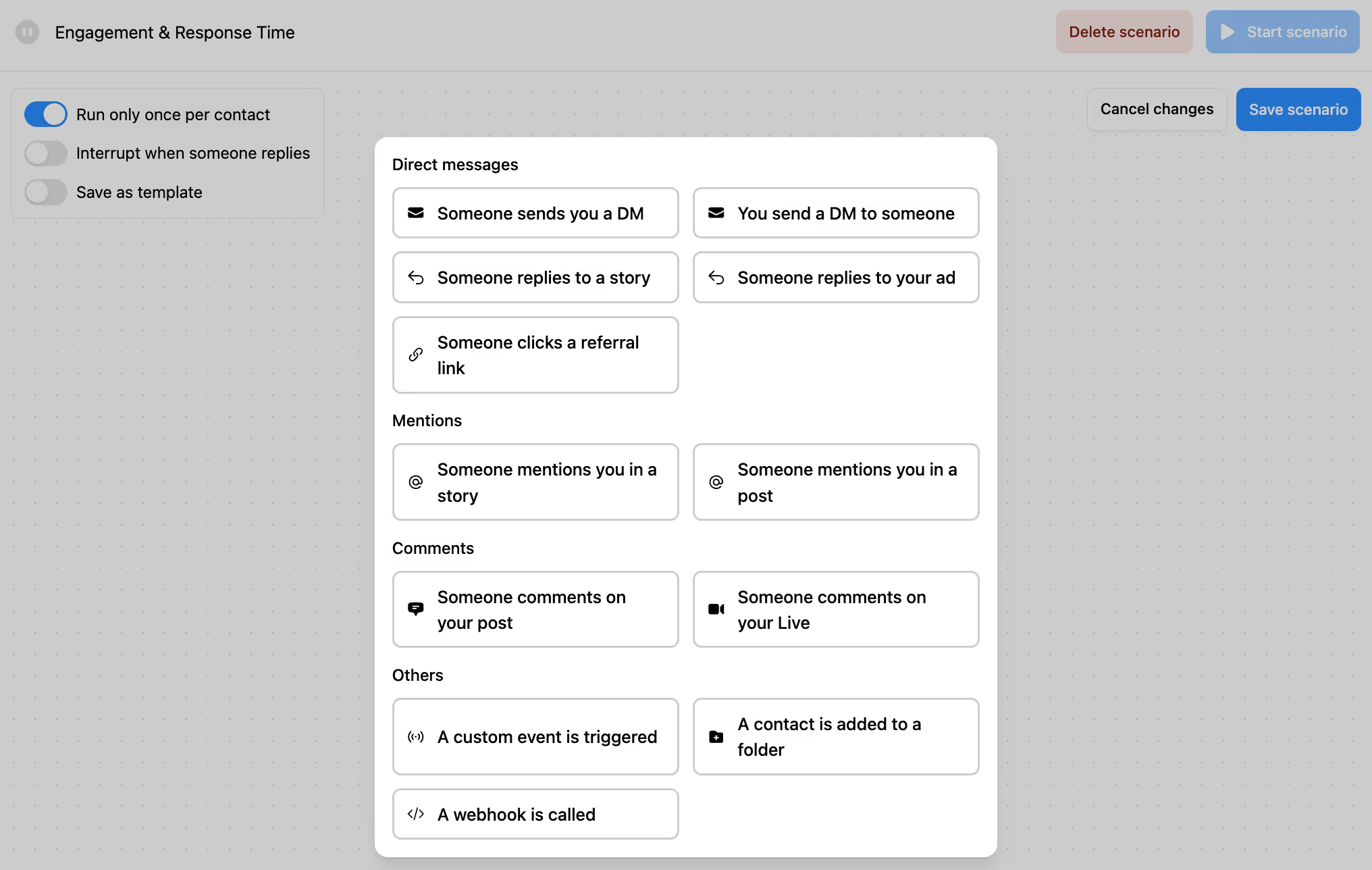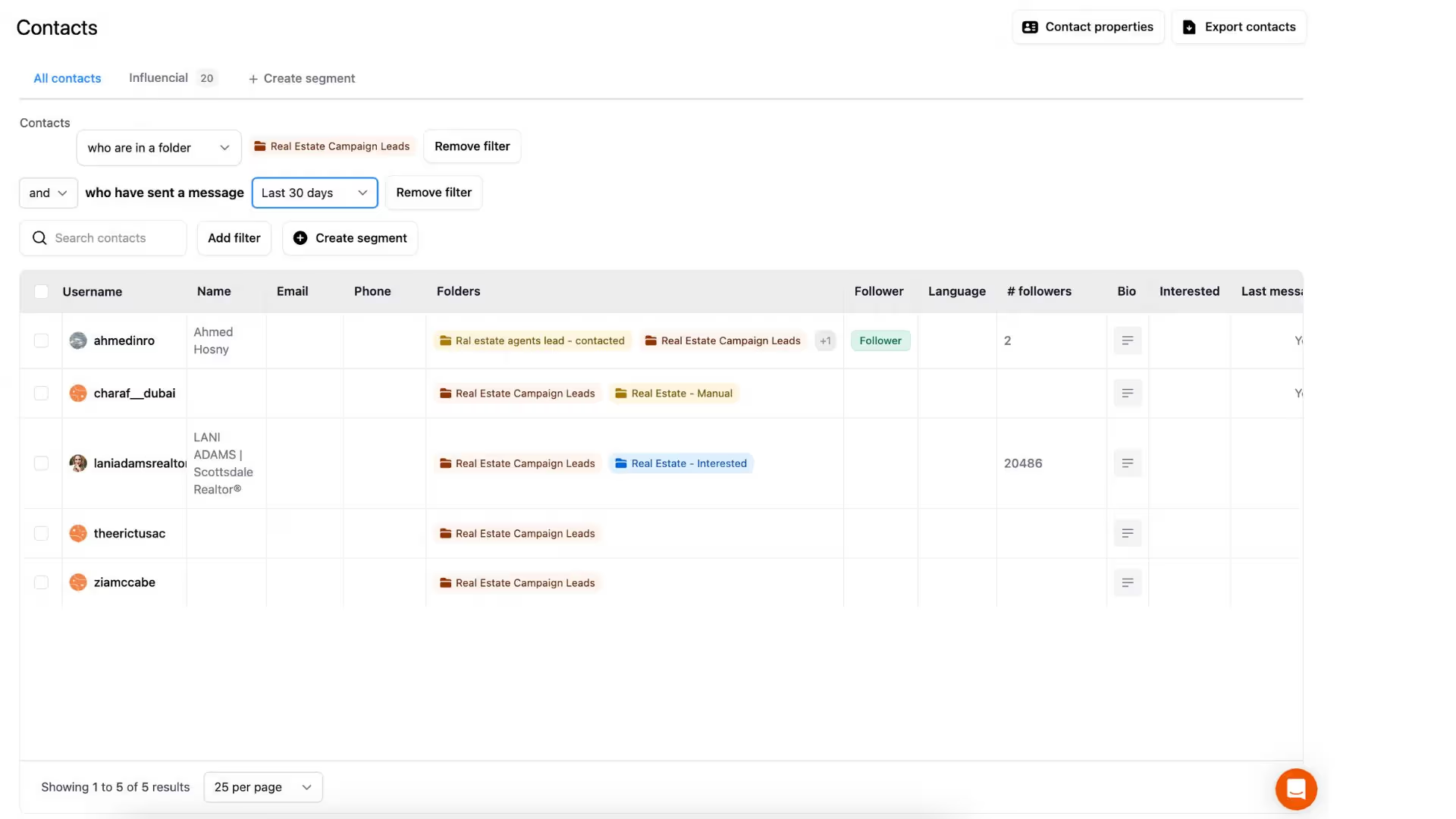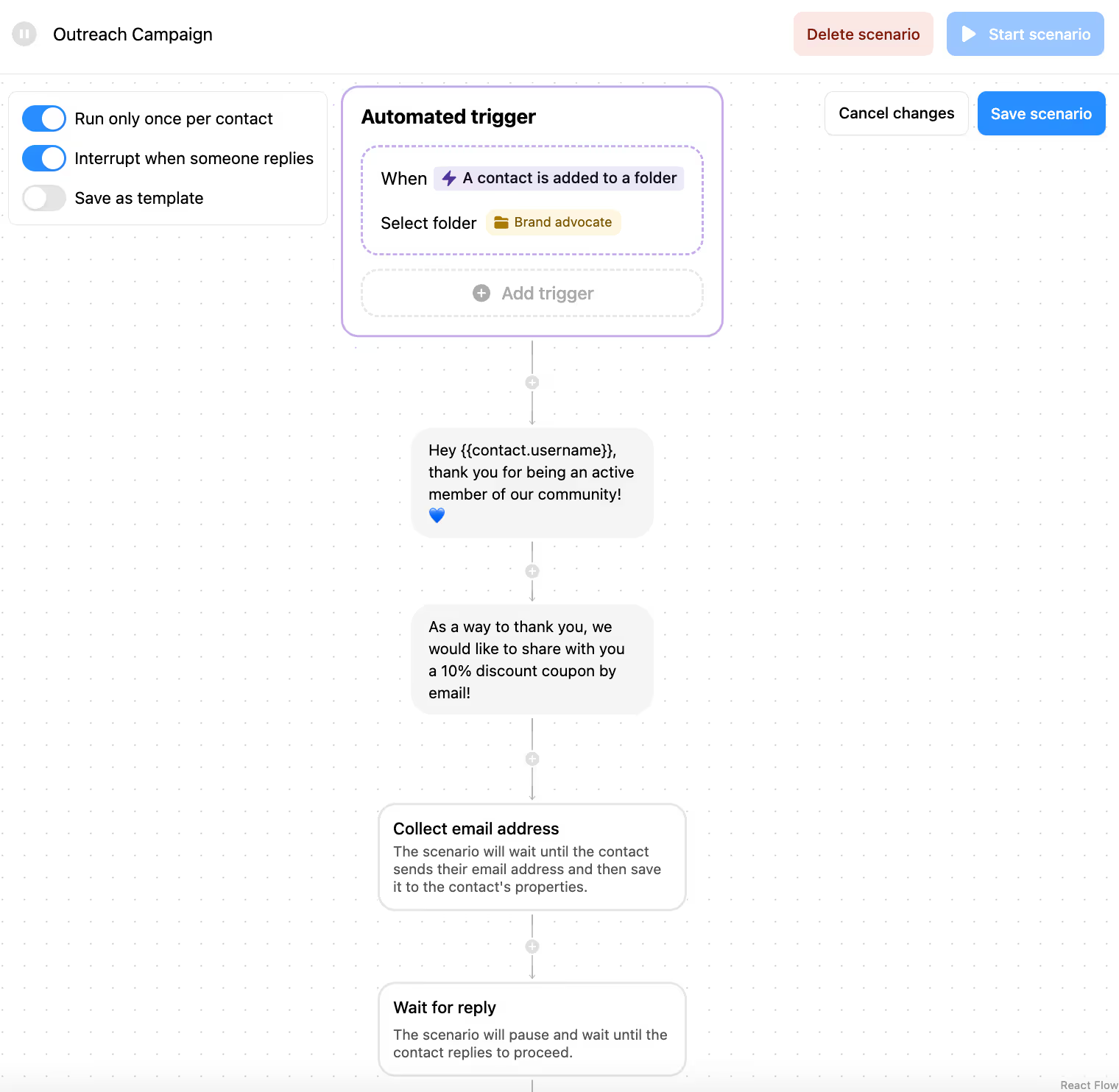Choose the best platform to maximize your lead generation strategy and improve your outreach efforts.
.avif)
TL;DR
TL;DR: LinkedIn vs Instagram for Outreach & Lead Gen
To maximize their prospecting strategy, businesses often rely on social media like LinkedIn and Instagram to connect with target audiences. While both platforms are effective, each has distinct advantages, making the choice dependent on the target market, content strategy, and goals of your outreach.
LinkedIn’s reputation as the primary B2B social platform stems from its design and features tailored specifically for business networking and professional growth. This makes it an ideal platform for brands looking to engage directly with decision-makers, industry experts, and professionals.
LinkedIn’s unique tools support deep, targeted outreach and are unmatched in B2B environments. Through filters for job title, company size, industry, and location, LinkedIn enables highly specific targeting that allows brands to zero in on the professionals they most want to reach. LinkedIn’s specialized features for content and communication create further benefits:
LinkedIn’s high engagement on InMail and personalized messages—averaging 57.5% open rate and 10-25% response rates —demonstrates the impact of LinkedIn’s B2B-centric design for reaching engaged prospects.
Building a Targeted Audience: LinkedIn’s community of over 1 billion users provides a vast, engaged base of professionals. Advanced targeting by factors like industry, seniority, and job role makes it easier to reach a brand’s ideal customer persona and build a relevant audience.
Generating Qualified Leads: LinkedIn’s conversion rates for B2B prospecting surpass those of other social platforms, driven by tools like LinkedIn Sales Navigator, which helps identify and connect with high-fit leads. Features like “Viewers of Your Profile” also provide additional signals of interest, allowing sales teams to target users who have shown organic interest in a company or its offerings.
Authentic Networking: LinkedIn’s professional setting fosters authentic relationship-building through features like long-form content, which allows professionals to share insights, value-based messages, and updates. LinkedIn Groups and direct messaging also support authentic networking, providing platforms for in-depth industry discussions and community-building.
Automation for Efficiency: LinkedIn allows for a degree of automation in outreach. Third-party tools like PhantomBuster and La Growth Machine streamline outreach and follow-ups, enabling businesses to scale personalized engagement while saving time. Automation can even extend to engagement prompts like welcome messages for new connections, keeping professionals top-of-mind in their networks.
Insightful Content Features: Through LinkedIn Pulse, companies can publish articles directly within the platform, enhancing thought leadership and engagement. Visual content like videos also drives high engagement, with YouTube videos embedded directly in feeds achieving up to 75% higher share rates, and images attracting nearly double the comment rate of text-only posts.
While originally created as a photo-sharing app, Instagram has evolved significantly, emerging as a valuable tool both for marketing and sales teams. Its appeal lies in its ability to foster strong relationships, build brand stories, and deliver high-engagement visuals that quickly capture audience interest.
Instagram’s user base and feature set now make it a powerful platform for brands aiming to cultivate authenticity, build quick connections, and achieve visibility among potential clients. Unlike LinkedIn’s professional, targeted approach, Instagram provides a more casual, visually-driven environment, ideal for brands looking to showcase personality and reach a broader audience.
Nurture your leads across their customer journey: Instagram is an ideal platform for companies to nurture prospects along their buying journey by offering valuable content, such as invitations to webinars and access to white papers. These resources can be offered for free but should be trackable, helping companies understand engagement and interest. Because Instagram has such a large, active user base, brands can leverage the platform to share lead magnets or public relations stories that highlight their expertise and achievements. Unlike B2C companies, where purchases are often more immediate, companies benefit from focusing on a gradual nurturing approach. This approach allows brands to build trust and credibility over time, ultimately guiding prospects through each stage of their journey more naturally.
High Engagement on Organic Content: Organic posts on Instagram generate more interaction than promotional content on many other platforms, creating an ideal environment for brands to build rapport with followers. This engagement is essential in B2B, where decision-making often involves trust and familiarity. Through interactive features like polls, comments, and live sessions, brands can nurture these relationships, leading to deeper customer connections. Additionally, tools like Reels have emerged to be invaluable to increase businesses visibility potential, thanks to the wide reach they provide.
Influencer Marketing & Collaborations: Instagram is home to a wide range of micro-influencers who focus on niche industries and specialized audiences. For brands, this presents valuable collaboration opportunities with influencers who have direct access to targeted professional networks. By partnering with these influencers, marketers can harness the trust, authenticity, and reach these influencers have, boosting engagement and creating credible brand introductions for potential customers. Brands can also maximize their reach through features like Instagram’s Collabs tool, which allow posts to appear in both accounts’ feeds, increasing impressions and encouraging followers from both audiences to engage.
Advertising for lead generation: Instagram ads offer powerful reach, with the potential to connect with up to 849.3 million users worldwide. In addition, 83% of users report that they use Instagram to discover new products and services. Video ads on Instagram tend to be especially effective, generating up to 3x more engagement than photo ads. The platform also allows for precise targeting based on factors like age, interests, and even specific app behaviors. Leveraging these tools can help marketers deliver their messages directly to key audiences more effectively.
Unique targeting opportunities on Instagram: Instagram is an ideal platform for connecting with small businesses and independent content creators, audiences that are often less active on LinkedIn. LinkedIn tends to attract larger companies with dedicated marketing teams, while Instagram’s flexibility and visual focus make it well-suited to small business owners who want to connect directly with their customer base but have limited time and resources for platform management. For local businesses, in particular, Instagram is a natural fit. Unlike LinkedIn, which has lower adoption among smaller businesses, Instagram offers a faster, more visual way to reach local customers. In fact, fewer than 10% of local businesses are on LinkedIn, and 60% of U.S. businesses overall do not use LinkedIn, highlighting Instagram as a key channel for reaching these audiences.
Instagram automation is becoming increasingly popular among marketers seeking efficiency and consistency in their outreach strategy. By automating routine tasks, brands can save time, engage with their audience regularly, and optimize the impact of their efforts.
Engagement and response management
Tools like Inrō offer features for automating responses to common direct messages and comments. For brands, this enables timely engagement, even during off-hours, and can be tailored to guide leads through the early stages of the sales funnel.

For instance, you can select any of this trigger to set up an automated scenario that will run on selected interactions with the brand’s page.
Analytics and performance tracking
Inrō’s CRM feature offers valuable insights into audience engagement, demographic information, and campaign performance, eliminating the need for manual tracking. With its visual reporting tools, brands can easily analyze which marketing efforts are effective, enabling them to adjust their strategies based on solid data.

For instance, you can refine your DM campaigns by filtering contacts, such as those organized into specific folders or those who have responded to your outreach messages.
Lead generation and CRM integration
Instagram automation tools can also facilitate lead generation by capturing data from interactions and linking it to customer relationship management (CRM) systems. For instance, tools like Inrō can integrate with CRMs to log interactions and help sales teams follow up with potential leads. Automating this flow makes it easier to identify and nurture leads from Instagram, streamlining the sales process and improving conversion rates.
Get your Instagram clients on your emailing List
Inrō’s automation features simplify the collection of email addresses from Instagram audiences by offering streamlined methods for lead generation. Businesses can use lead magnets to attract potential customers and collect email addresses directly through automated DM conversations and integrated collection forms. Rather than relying on a link in the bio or redirecting leads to external landing pages, businesses can proactively engage users with an effortless sign-up process, creating a frictionless experience that automates lead generation and allows for greater scalability in outreach efforts.

You can directly collect email addresses from your Instagram DMs and integrate contact details into your CRM.
Minimizing friction in lead capture
Since audiences typically seek detailed informational content to convince other stakeholders, they rarely make direct purchases through Instagram ads. Instead of solely using calls to action like “learn more” by clicking in the link in bio to drive traffic to landing pages, automation tools like Inrō allow brands to send dedicated links directly through DMs. This approach reduces friction for qualified leads, making the lead-capture process smoother and more efficient.

In summary, both LinkedIn and Instagram offer unique advantages for outreach, and understanding these distinctions can significantly enhance your outreach strategy.
By strategically utilizing both LinkedIn and Instagram, marketing and sales team can create a robust outreach plan that drives engagement, builds relationships, and ultimately converts prospects into loyal customers.
Join automations strategies and Instagram Insights weekly
By entering your email address above and clicking Subcribe, you consent to receive marketing communications (such as newsletters, blog posts, event invitations and new product updates), and targeted advertising from Inrō from time to time. You can unsubscribe from our marketing emails at anytime by clinking on the "Unsubscribe" link at the bottom of our emails. For more information about how we process personal information and what right you have on this respect, please see our Privacy Policy.
Attract more leads, target them with DM marketing, and automate your interactions on Instagram!

